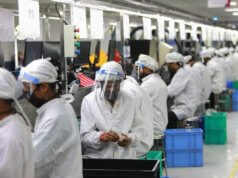When we decided to list out ten most controversial tenders issued in Indian construction and infrastructure sector we were confronted with a problem of plenty. Drafting the tender specifications to suit some bidders has reached its zenith and in many cases disputes end up in courts. Creativity of tender issuer has always remained ahead of the CVC’s vigilant eyes. As a result in many cases of controversies, winning bidder had a last laugh. Here is a list of 10 controversial tenders:
ABB Electric locomotive contract:
$ 190 million (Rs. 532 crore) electric locomotive contract awarded to ABB in 1992 by the then Railway Minister (in PV Narasimha Rao’s government) C.K. Jaffer Sharief had created lot of controversy. In awarding the locomotive contract to the Swiss multinational, ABB, the Railway Minister had not only contradicted the recommendations of his ministry’s tender and finance committees, but also those of the Department of Economic Affairs (DEA). All three had preferred the public sector Bharat Heavy Electricals Limited (BHEL) to ABB. The BHEL bid worked out cheaper than ABB because it was exempted from customs duty. Yet, the Railway Ministry placed a letter of acceptance with ABB for the purchase of 20 three-phase 6,000 horsepower electric locomotives and 10 passenger locomotives at a cost of Rs. 532 crore. What surprised many was the haste in which order was placed and the overnight change in tender committee. Despite CBI probe and court strictures, Jaffer Sharief continued to remain as the Railway Minister.
Kawas and Gandhar gas-based power project tenders:
In most of the controversies relating to power project tenders, BHEL’s involvement, either as accused or as complainant, is quite natural. In this case, BHEL had accused NTPC of favoring ABB. According to BHEL, last minute changes were made in the tender specifications which enabled ABB to win the contract for power plants at Kawas and Gandhar worth Rs. 1,350 crore each. It was alleged that on the final day of submission of tender, NTPC sent a fax to the competing parties at 5 am making changes while tenders were to be submitted by 11 am. As per the original tender specifications, naphtha was supposed to be ‘bridge fuel’ but early morning fax included HSD also in it! ABB has greater expertise in producing equipment running on diesel while BHEL specialises in naphtha-based equipment. Just a few months before this controversy, BHEL had alleged that NTPC had favoured the Swedish multinational ABB over BHEL in the 2000 MW Talcher project.
Dahej-Uran pipeline tender:
450 km long Dahej-Uran pipeline project envisaged in 2003 was intended to transport gas from Petronet LNG terminal at Dahej. However, the project could see the light of the day only in 2008 with cost shooting up from Rs. 1400 crore to Rs. 1800 crore. Perhaps it is one of the rare cases where Presidential Directive had to be issued to prevail upon the project developer, Gail (India), to cancel the tender for the pipeline project following the controversy over the technology specifications for pipelines. GAIL had called tenders from companies manufacturing LSAW (longitudinal submerged arc welded) pipes. But the government, through a Presidential Directive, asked GAIL to also include HSAW (helically submerged arc welded) pipe manufacturers in the tendering process. If the company had allowed only LSAW pipe manufacturers no Indian manufacturer would have been able to participate in the project. As a result of the Presidential Directive, the original tender issued by GAIL had to be cancelled. When the company invited bids a second time the government once again intervened on the grounds that Gail had not incorporated sufficient provisions in the tender to ensure wider participation. As a result, bids had to be put on hold and the validity of the bids was extended more than once. Finally when Gail came out with tender in 2005, one-year moratorium on participation of PSL Ltd in Gail’s tenders was over. The company eventually went on to win major portion of the project.
Maharashtra Irrigation tenders:
Maharashtra irrigation tenders hogged the limelight when major scam in irrigation projects came out. The Maharashtra state water resources department awarded additional works amounting to hundreds of crores to irrigation contractors across the state without calling for fresh tenders between 2000 and 2006 taking advantage of clause 38 in the original tender. Clause 38 allowed the department to award additional work to the existing contract without calling for a fresh tender. In most of the cases these extra works were not within the scope of the existing contract. In many cases these additional works were worth two to three times the cost of the original contract. Finally the clause 38 was scrapped in 2012. But by then thousands of crores of rupees were already siphoned off by the contractor-politician-bureaucrat nexus.
Delhi-Mumbai airport privatization tender:
Government’s attempt to privatize Delhi and Mumbai airports not only met with stiff political opposition by the Left wing parties but also faced lengthy litigation by the losing bidder, that is, Reliance-ASA JV. Reliance accused the government of making changes in the published tender conditions, barely two hours before the opening of the bids. Reliance argued that there was no provision in the Request for Proposal or tender conditions to give any bidder an option to match the highest bid, that too selectively for only one airport.
The evaluation process of the bids was also questioned at various levels by some bidders. Even Gajendra Haldea, the member representing the Planning Commission had raised several objections on the short listing of the two bidders. He was of the view that there was a possibility of bias in the eligibility criteria and in the evaluation of the same. Question of conflict of interest was raised as the Reliance and GMR were amongst the top five borrowers of the ABN Amro who was one of the consultants for the government. At one point of time Committee of Secretaries had to rope in Group of Eminent Technical Experts headed by E Sreedharan to examine the evaluation process as the government faced lot of flak from all the quarters.
Finally, the losing bidder knocked at the doors of the court to get justice. After two stages of legal battle, the bidder finally lost the case in November 2006 and the original awardees retained their position.
Sasan Ultra Mega Power Project tender:
Sasan UMPP got soaked in controversies from the day Globaleq-Lanco JV won the project initially and since then controversies followed the project with regular intervals, even after completion of the project. Subsequent to the award, in February 2007, Globaleq Singapore was bought over by Lanco and Jindal Steel and Power. The second lowest bidder, Reliance Energy, then objected strongly to the award, claiming Lanco and Globaleq Singapore had concealed this crucial impending development while bidding. Reliance Energy argued that as L2 it should be given the chance to develop the project. NTPC, which had one of the highest price bids, said that the project should be re-bid as there had been a change in ownership. Eventually, the project was awarded to Reliance Energy. Controversies again erupted when Reliance Power was allowed to use surplus coal for the Chitrangi power project, which is located close to Sasan. CAG had criticized the decision by the government to allow Reliance Power to use surplus coal from the three mines dedicated to Sasan for another power project, Chitrangi, as it amounted to a post-bid benefit. Aggrieved by the decision, Tata Power filed a writ petition which was rejected by the Delhi High Court on technical grounds. Tata Power has filed an appeal before the Supreme Court.
MMTC tender for coal import:
Coal is a scarce commodity, but scandals relating to coal are aplenty. NTPC, power generation behemoth, wanted to import 12.5 million tones of coal and the task was assigned to MMTC. MMTC in turn floated a tender in May 2009 inviting offers from interested parties. But some of the participants alleged that MMTC had structured the tender in such a way as to give one of the bidders, Adani Enterprises Ltd (AEL) a competitive edge over three other bidders in the Rs. 6,000-crore contract. Provision of differential earnest money deposits favoured the large players vis-à-vis smaller ones. Also MMTC had first asked that the coal to be delivered to any west coast port in India but it later changed that clause to “any west coast port in India in the state of Gujarat.” Due to allegations of favouritism MMTC scrapped the tender and issued a fresh tender four months later. But that tender too courted controversy with a prospective bidder alleging that the terms are faulty and that any Indian firm executing the order would violate the country’s foreign exchange laws. While coal stock at many NTPC generation stations touched new lows, controversy surrounding coal tenders was touching new peaks every day. Finally, NTPC decided to import coal directly without involving MMTC.
CWG tenders:
In fact one need not go too far to search controversial tenders, just need to glance through each and every tender issued for the Commonwealth Games which were held in 2010 at Delhi and you will find almost all tenders controversial. The Central Vigilance Commission had released a report showing irregularities in up to 14 CWG projects. “Almost all the contractors for games-related projects inflated their costs,” the report said. Irregularities included the award of work contracts at higher prices, poor quality assurance and management, and work contracts awarded to ineligible agencies. There were also allegations of widespread corruption in various aspects of organising the games including procurement and awarding contracts for constructing the game venues. CWG Organising Committee chairman Suresh Kalmadi was arrested by CBI and a chargesheet was filed against him for irregularities in awarding some contracts. Suresh Kalmadi is likely to fight next general elections from his hometown Pune from Congress party.
Telecom license tender or 2G tenders:
Non-auction of 2G spectrum and its allocation at 2001 rate to 120 applicants in 2008 were at the root of the 2G scam. DoT’s own rules and regulations were flouted. Spectrum was allotted to 120 favoured licensees at 10-times low price even when there was huge rush of applicants as a total of 573 applications were received. Usual in case of any government tender the date of receipt is extended, but never cut off, which was done in this case. Cut off date was arbitrarily advanced from 1st October 2007 to 25th September 2007 in a bid to keep away 373 applicants. CBI had mentioned in its chargesheet that ‘physical fitness’ of the representatives of the telecom companies became the deciding factor for submission of LoI and entry fees for allocation of spectrum, making a mockery of the first-come-first-served clause. Out of 120 licensees, 85 had no experience in communication sector. 75 licensees did not satisfy paid up capital criteria. Ultimately the Supreme Court cancelled all the licenses allotted due to which some genuine players too had to suffer.
According to CAG, the scam caused a loss of Rs. 1.76 lakh crore and CBI put the figure at Rs 30894 crore. Most importantly, India’s credibility among the international investment community took a severe beating.
Indirasagar Polavaram Irrigation tender:
Controversy and Polavaram project go hand in hand. When Transstroy – JES UES finally won the project last year for Rs. 4,054 crore which involved construction of an earthen-cum-rock fill dam, spillway and penstocks in the dam for a powerhouse, everyone felt that controversy surrounding the tenders will end. But that was not to be. Other three shortlisted consortiums, namely, Soma- CGG CTV, Madhucon- Sinu Hydro, and SEW Infrastructure Ltd-Patel cried foul saying the certificates produced by the JV partners of Transstroy were fake. They filed a writ petition in Andhra High Court praying for cancellation of the contract. However, the High Court dismissed these writ petitions in September, 2013, thus paving the way for the project execution. Still political turmoil in the state may derail the project.
It may be remembered here that after postponing the tender calling process 17 times since 2007, when the state government awarded the contract to SEW-led joint venture in 2012, CGGC-Soma Joint Venture (JV), the second lowest bidder, moved the Andhra Pradesh High Court alleging irregularities in bidding. Eventually, the contract was cancelled.











